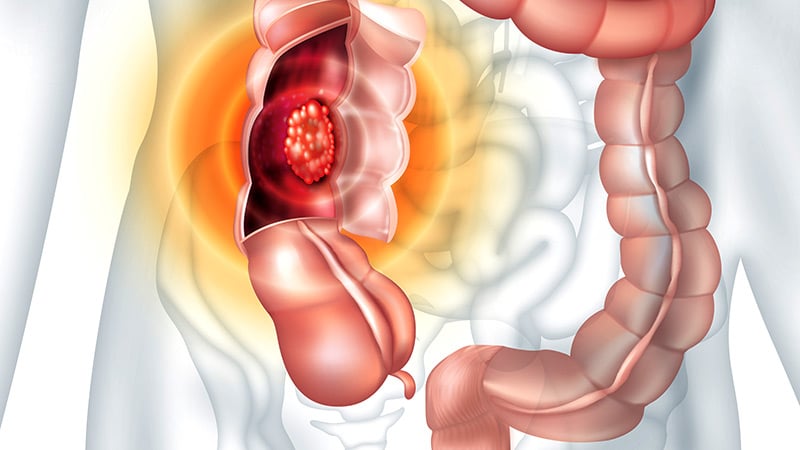TOPLINE:
Continuing anti-vascular endothelial growth factor (VEGF) therapy plus chemotherapy in the second-line setting led to a small but nonsignificant increase in overall survival in patients with right-sided, RAS/RAF wild-type metastatic colorectal cancer (CRC) compared to patients who received anti-epidermal growth factor receptor (EGFR) therapy plus chemotherapy.
METHODOLOGY:
- Despite limited evidence, guidelines recommend anti-EGFR therapy plus chemotherapy in the second line for patients with RAS/RAF wild-type, right-sided tumors who did not previously receive anti-EGFR therapy.
- To assess whether this is the best option, the current study compared the effectiveness of continuing chemotherapy plus anti-VEGF in the second-line or using anti-EGFR plus chemotherapy.
- Researchers used electronic health record data from 280 community oncology clinics in the US.
- The analysis included 444 patients (median age, 65 years) with RAS/RAF wild-type, right-sided metastatic CRC who received first-line chemotherapy plus anti-VEGF therapy, followed by second-line anti-VEGF therapy (n = 269) or anti-EGFR therapy (n = 175) with chemotherapy.
- Researchers then compared overall survival in these two groups.
TAKEAWAY:
- Compared with the anti-VEGF therapy group, the anti-EGFR therapy group demonstrated a nonsignificant increased risk for death (hazard ratio [HR], 1.24; P = .10).
- The median overall survival was 15.3 months with anti-VEGF therapy vs 12.0 months with anti-EGFR therapy.
- The findings were consistent with first-line trial results, showing nonsignificant worse overall survival with anti-EGFR vs anti-VEGF therapy in right-sided tumors (HR, 1.09).
IN PRACTICE:
Among patients with RAS/RAF wild-type, right-sided metastatic CRC who received first-line chemotherapy plus anti-VEGF therapy, these findings “provide some evidence for continuing anti-VEGF therapy in the second line, although the result was not statistically significant,” the authors wrote.
SOURCE:
This study, led by Nishwant Swami, MD, MPH, Hospital of the University of Pennsylvania, Philadelphia, was published online in JAMA Network Open.
LIMITATIONS:
This study was limited by possible unmeasured confounding factors and had limited statistical power due to the relatively small proportion of metastatic CRC cases that were right-sided and RAS/RAF wild-type.
DISCLOSURES:
No funding information was provided for this study. Several authors reported receiving grants and personal fees and having other ties with various sources.
This article was created using several editorial tools, including AI, as part of the process. Human editors reviewed this content before publication.
Source link : https://www.medscape.com/viewarticle/which-second-line-therapy-better-right-sided-metastatic-crc-2025a1000gns?src=rss
Author :
Publish date : 2025-06-23 12:20:00
Copyright for syndicated content belongs to the linked Source.
